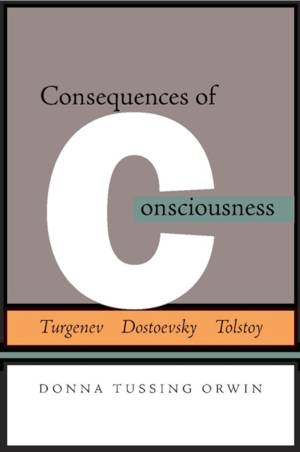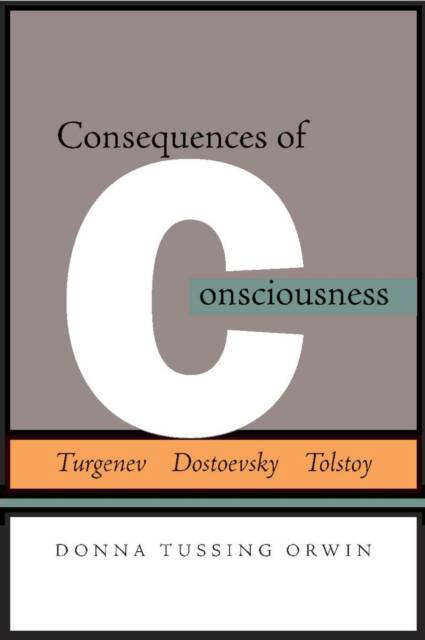
- Retrait gratuit dans votre magasin Club
- 7.000.000 titres dans notre catalogue
- Payer en toute sécurité
- Toujours un magasin près de chez vous
- Retrait gratuit dans votre magasin Club
- 7.000.000 titres dans notre catalogue
- Payer en toute sécurité
- Toujours un magasin près de chez vous
Consequences of Consciousness
Turgenev, Dostoevsky, and Tolstoy
Donna Tussing OrwinDescription
Russian psychological prose has made a distinct contribution to world culture--not only to literature, but also to practical psychology and even to neuropsychology. Consequences of Consciousness focuses primarily on Russian ideas of the self and subjectivity, and how these ideas find expression in the fiction of Turgenev, Dostoevsky, and Tolstoy--the most important founding authors of the Russian school of psychological realism. These writers explore both the limits and the autonomy of subjective consciousness, and their books are as relevant today as they have ever been. Through close analysis of many well-known texts, Orwin reveals that these three authors conversed with each other through their works. She emphasizes the role Western thought played in the development of their psychological prose and how it was transformed by a Russian context.
Spécifications
Parties prenantes
- Auteur(s) :
- Editeur:
Contenu
- Nombre de pages :
- 256
- Langue:
- Anglais
Caractéristiques
- EAN:
- 9780804757034
- Date de parution :
- 11-10-07
- Format:
- Livre relié
- Format numérique:
- Genaaid
- Dimensions :
- 163 mm x 233 mm
- Poids :
- 508 g







